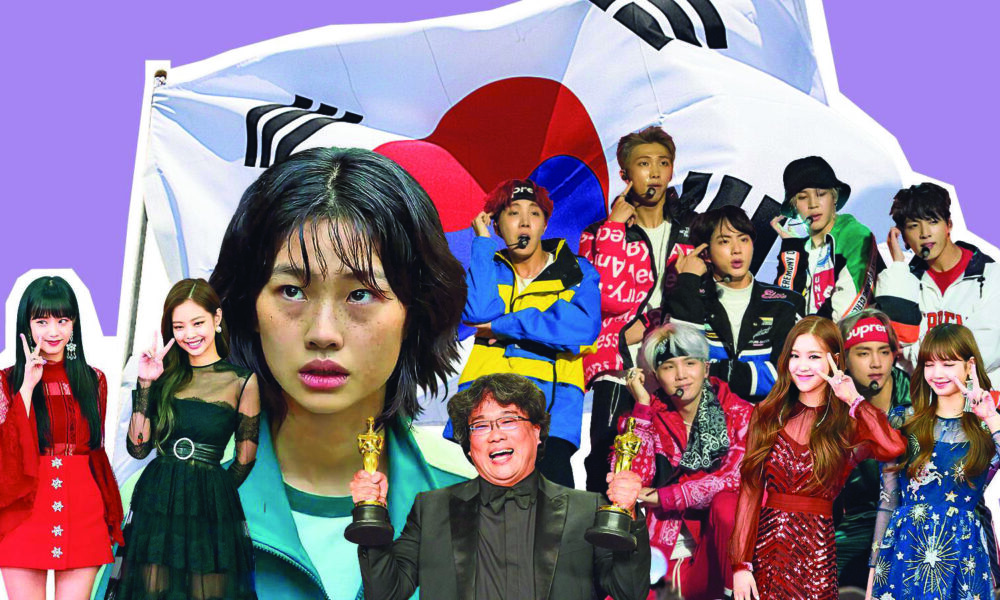In late September, my mom and I were chatting during one of our routine Facetime calls. An avid TV-watcher, she excitedly asked me if I had heard of Squid Game. The show had just come out, and my mom binged the series in a matter of days. As the semester was soon heading into full swing, I brushed off her rave reviews and told myself that I would get to the show eventually. To my surprise, the Netflix Original quickly became a household name. Companies scrambled to photoshop their logos onto screencaps of dalgona as folks on the internet recreated the candy themselves, the same treat that my parents and their classmates would buy from street vendors outside of their elementary schools. If they successfully popped out the shape in the centre of the candy, vendors would reward them with another one for free. My parents shared these stories as my mom made dalgona for us at home. We’d gather around to watch her stir up sugar and a flick of baking soda with a wooden chopstick. The mixture puffed up in our beaten-up dalgona ladle, one of few things we brought over from Korea when my family immigrated.
Growing up in Canada in the mid-late 2000s, many of my peers didn’t know where South Korea was, or that the country even existed at all. Mentions of East Asia in popular media were few and far between, and what little did exist usually glossed over Korea entirely. As kids got older and their senses of humour more “edgy,” talking about being from Korea did eventually garner some recognition—albeit, often in the form of tired, unfunny comments about North Korean dictators. Nevertheless, I was always proud of my heritage, and I longed for the people around me to see what made my home country so special.
In the last decade, I seem to have gotten what I so badly wished for as a kid—and then some. Korean music, film, and television have recently exploded in popularity, their presence becoming unignorable to unsuspecting Western audiences. Squid Game broke viewership records for Netflix. Although I think the Oscars are an elitist, white-male-infested Hollywood echo chamber, I couldn’t help but hold back tears when Bong Joon-Ho’s Parasite became the first foreign-language film to win Best Picture. Of course, I can’t go without mentioning Korean boy band BTS, who became the first Asian act to win Artist of the Year at the American Music Awards.
Korean pop music is a gateway to Korean culture for many, and I can see why the genre is booming outside of Korea. For starters, the K-pop industry knows how to make a catchy song. Artistically, K-pop visuals and choreography never fail to be fun and masterfully produced. The rise of K-pop has also brought insufferable “stans” and “Koreaboos,” whose fancam Twitter replies are at best cringe-inducing, and at worst outright disrespectful.
The fetishization of Korean idols and culture is also a huge issue in fan communities. Extreme examples include British influencer Oli London, who has undergone 18 surgical procedures to look “more Korean.” London attributes their cosmetic alterations to “loving Korean culture.” They call Jimin of BTS their ultimate idol, and hope that “having his eyes” will “make Jimin proud”—the statement makes me want to gouge my own eyes out. Oli London’s use of the neopronouns “Kor/Ean” may just be a poor excuse for a publicity stunt, but their words still negatively impact Korean people and invalidate trans communities everywhere.
Cultural appropriation also lies in the little things. I’ve seen far too many fans of Korean dramas and K-pop call their favourite male celebrities “oppa.” The Korean honorific is used by female-identifying people to refer to older male family members and significant others. It’s a given that both parties should have a close enough relationship with each other and mutually agree on the term’s usage. I can’t imagine that these unspoken rules are fulfilled when referring to performers on a computer screen.
Am I glad that Korean artists, filmmakers, and creatives are getting the international recognition they deserve? Of course. Am I glad that culture vultures and overzealous stans cherry-pick from the Korean experience and act like authorities on a culture they can choose to wear as an accessory? Of course not. Sometimes I wish Korean media never made its way to the spotlight, no matter how deserving it may be.









